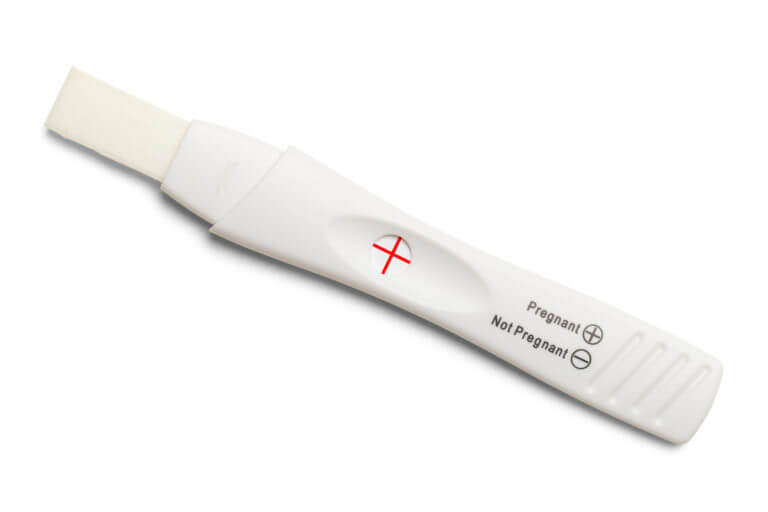
When your period is late, the first thing you might think is, “Could I be pregnant?” To be sure, you go to your local drugstore to purchase a couple of at home pregnancy tests. After urinating on the pregnancy stick, you wait a few minutes, and sure enough, multiple tests show positive, meaning that you are in fact, pregnant.
An at home pregnancy test works by detecting a hormone in your urine called Human Chorionic Gonadotropin (hCG). You may have heard of hCG (or certainly the hCG diet). This is the hormone that helps your body burn stored fat, and turn food into energy, and boosts your metabolism in order to lose weight. hCG in regard to pregnancy, is a hormone produced in a women’s placenta, which helps to nourish and protect the unborn fetus as it grows and develops into a healthy newborn baby.
This hormone will appear in a pregnant woman’s urine approximately 20 days after her last period. If the test is done too early, there is a chance it could be a false negative. It is best to wait 21-25 days after your last period to take the test, or approximately three weeks after you last had sex.
After a positive pregnancy test, it is normal to feel a slew of emotions, including happiness and joy as well as worries, doubts, and anxiety. Whether this was a planned pregnancy or not, you are going to have a baby, and that can be overwhelming. There are a few important next steps you should think about and take after confirming the pregnancy at home. If you are like many women, you might not be sure what to do next. Here are some important things to do when your pregnancy test is positive.
1. Visit your gynecologist ASAP: If your pregnancy test indicates positive, it is important to visit your gynecologist as soon as possible. Because at-home pregnancy tests can sometimes be inaccurate, your gynecologist will confirm pregnancy with a blood test. In addition, your doctor will perform a thorough pelvic exam, calculate a due date, and schedule your pre-natal follow-up appointments. They will also discuss any health problems you may have, that might put you and your baby at a higher risk during the pregnancy. Your gynecologist can also answer many questions for you about what to expect over the next 9 months, and help ease your mind.
2. Stop taking certain medications: Stop taking birth control and over-the-counter medications such as painkillers or pain-relieving drugs after receiving a positive pregnancy test. Medications with the exception of Acetaminophen, should be avoided as it may cause complications during pregnancy. If you take prescription medications, discuss them all with your gynecologist to ensure they are safe to continue during your pregnancy.
3. Start taking pre-natal vitamins: Embrace being healthy as soon as possible if it is confirmed you are pregnant. Taking pre-natal vitamins and other nutrients will help your body nourish the baby. Eating a healthy diet is also important to keep your body healthy, and help you feel less fatigued and more energized during the pregnancy.
4. Stop Smoking: If you smoke, quit immediately. Tobacco has been linked to premature birth, low birth weights, and can cause birth defects, and increase the risk for stillbirth.
5. Stop Drinking Alcohol: Do not drink alcohol at any time during your pregnancy, as it causes birth defects.
To learn more about what to do after receiving a positive at-home pregnancy test, call University OB/GYN Associates at (315) 464-5162 to request an appointment or request an appointment online.



